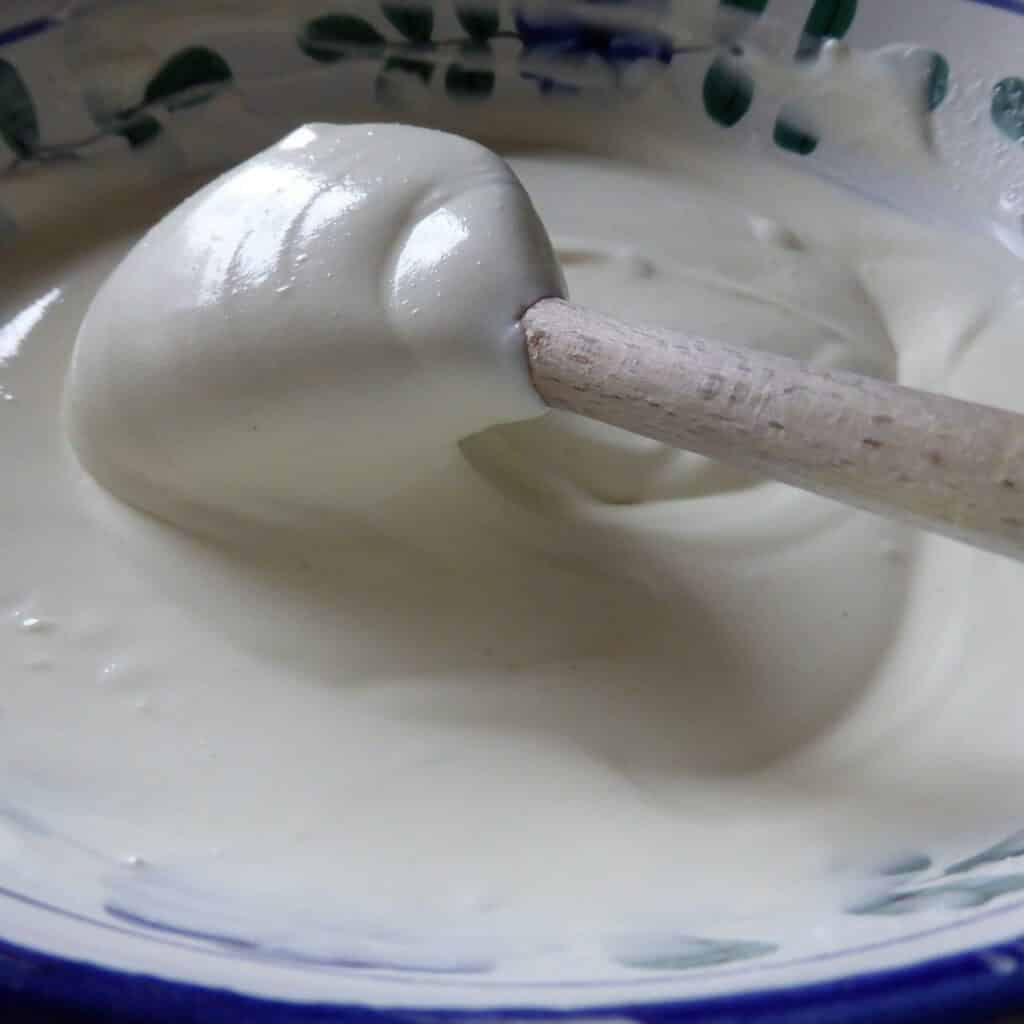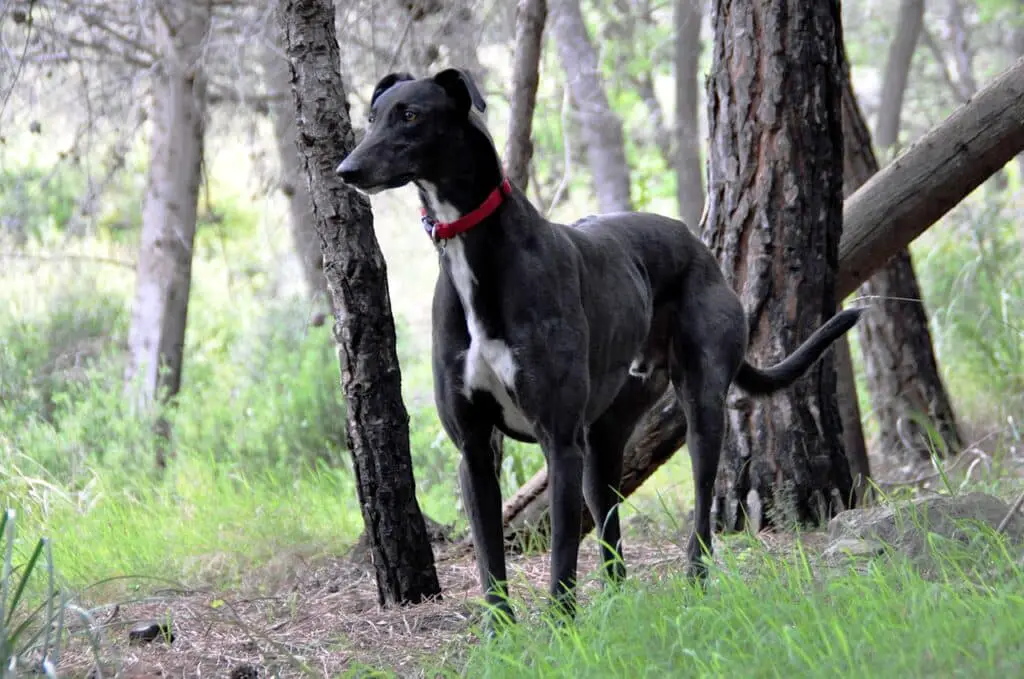It’s a lazy Sunday afternoon, and you’re making a cheese sandwich for lunch, then your favorite furry friend sniffs the delicacy.
When they give you that cheesy grin, would you hold back the urge to give them some slices?
We bet you’d risk and share, even as you ponder whether white cheese is safe for dogs.
So, can dogs eat white cheese?
Yes, but sparingly.
White cheese is nutritiously packed with proteins, vitamins, and fatty acids beneficial for your canines’ health.
Conversely, cheese is rich, fatty, and high in sodium ingredients, dangerous to your furry friend.
White cheese could lead to GI, lactose intolerance, and pancreatitis in large amounts.
Contact your vet before adding it to your dog’s diet.
Although white cheese is delicious, factors like your dog’s health, weight, digestive issues, cheese type, and the amount of cheese to feed them matter much when feeding your canine.
This article explicitly guide you on everything white cheese and dogs.

Is white cheese good for dogs? Nutritional benefits
Rich in vitamins
White cheese contains a fair amount of B-complex vitamins that support cell development and increase blood flow and energy production.
Vitamin A in white cheese aids vision and improves your dog’s immune system.
Rich in calcium
White cheese is filled with calcium that supports bone development and strong muscles in canines, particularly younger puppies.
Calcium is also great for cell growth and development in dogs.
High-quality proteins
White cheese contains high levels of proteins necessary for your dogs’ proper body functioning.
It contributes to healthy hair, coat, muscle development, and tissue repair.
Fatty acids
Cheese contains different fatty acids that aid in maintaining healthy skin, promoting cell growth, and improving the immune system’s functioning in canines.

What are the risks of feeding your dog white cheese?
Generally, white cheese is safe for canines, but you need to feed them cautiously for the following reasons;
High-fat levels
Low-fat cheese is ok for your dog’s diet.
However, the increased fat levels in most white cheeses can lead to obesity and pancreatitis if consumed regularly.
Pancreatitis is caused by too much inflammation of the pancreas due to increased fat levels and can be fatal when left untreated.
High sodium
Some white cheese variety contains increased salts that are highly dangerous to dogs.
Ingesting too much salt leads to sodium poisoning, which manifests as extreme thirst, low energy, vomiting, diarrhea, and poor appetite.
Lactose intolerance
White cheese contains dairy, which is difficult for most dogs to digest.
Puppies have adequate lactase during breastfeeding, making it easier to digest lactose, but its production decreases as they wean off and transition to solid food.
Conversely, adult dogs lack the enzyme lactase, which aids in breaking down the protein in milk (lactose) for easy digestion.
Symptoms of lactose intolerance in dogs include; vomiting, diarrhea, bloating, and abdominal discomfort.
What type of cheese is safe for dogs to consume?
If you want your dog to stay healthy, maintain a low-fat, low-sodium diet, and regulate what they eat cautiously.
Therefore, pick cheese varieties like cheddar, Mozzarella, cottage, or Swiss cheeses.
Soft white cheese: These are basic household cheeses, such as cheddar, Mozzarella, and string cheese, and are safe for dogs in moderation. Pick varieties with low fat since most soft cheeses have a high-fat content.
Plain cream cheese: Always choose plain cream cheese for your dog, those flavored with garlic or onions are highly toxic for them. Cream cheese is fatty with high calories; thus, it should be fed cautiously and in moderation.
Low-sodium: Cottage cheese is rich in proteins, calcium, and vitamins while also low in sodium; thus, ideal for your furry friends. The probiotics in cottage cheese help to relieve stomach upsets in dogs. It’s also available in low-fat varieties.
Which type of cheese is bad for dogs?
Blue-veined: This cheese type contains high fats, sodium, and toxins dangerous for your canine’s health. In addition, this cheese has high sodium levels that would likely cause toxicity, therefore, avoid feeding it to your dog.
Flavored cheese – Cheese like Havarti contains herbs and spices for flavor enhancement. These additives are toxic to your canines and can cause stomach upsets and toxicity if consumed in large amounts.
Brie, Feta, and Goat cheeses – These types are toxic due to the insanely high levels of saturated fats, potentially hazardous to dogs. Excess amounts of this fat could cause pancreatitis, a severe canine condition.
How much white cheese is enough for my dog?
White cheese has dense nutritional value for your dog but is not a primary dietary component.
Balance it with other dog food consumed daily, sticking to the 10% rule for treats.
Avoid commercially sold white cheese with increased flavorings and salt.
The appropriate portion depends on your dog’s size, weight, underlying medical condition, and daily calorie intake.
Start with small amounts but check with your vet to ensure the quantity and the calorie requirements are factored in.
What should I do when my dog overeats white cheese?
First, check the type of cheese consumed.
If your dog ate plain cheese made with dog-safe ingredients, there’s no need to panic.
Depending on size, weight, and underlying medical condition, your furry friend may experience mild or severe stomach upsets.
Most will subdue with time.
On the flip side, if your dog ate large amounts of cheese with high sodium or fat, there is a problem.
High fat will cause gastrointestinal discomfort leading to vomiting, diarrhea, and worst-case pancreatitis in the long run.
Increased sodium levels could lead to sodium poisoning, which manifests as dehydration, lethargy, and seizures.
Contact your vet immediately if you spot these signs in your canine pal.
The bottom line
White cheese-like Mozzarella, cheddar, and the cottage is acceptable for your canines; just avoid feeding them blue-veined cheese such as Gorgonzola and Roquefort.
Although nutritious and delicious, be cautious with the amount and frequency you feed white cheese to your furry friends.
If your dog isn’t diabetic or lactose intolerant, then feel free to share some white cheese slices with them.
- What Dog Breeds Have Pink Skin? - March 24, 2023
- What Are the Most Inspiring Dog Breeding Quotes? - March 20, 2023
- Can Pheromone Spray Help Improve Dog Breeding Results? - March 19, 2023








